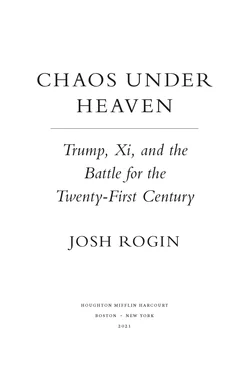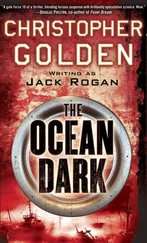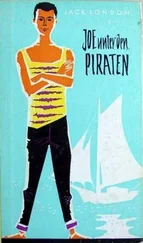Along with Kushner, the team met with former Treasury secretary Hank Paulson, who while Treasury secretary under President Obama had led the Strategic and Economic Dialogue with China, a massive annual conference where hundreds of officials from both countries were forced to sit down and talk with each other for a couple of days. Paulson pitched the framework as a useful mechanism the Trump administration should continue. Mnuchin had worked under Paulson at Goldman and relied on him for advice on China. Kushner also gave Paulson an avenue to influence Trump.
Bannon told Kushner this was the kind of fake diplomacy that the CCP used to lull the stupid Americans into a false sense of security while they advanced their plan to spread misery and tyranny around the world. “My belief is pretty straightforward, that the CCP is exactly like Mussolini, Hitler and Tojo. These are gangsters, they are criminals. They think like criminals, they act like criminals and they need to be treated like criminals,” Bannon explained later. “This is very much like the 1930s . . . They are at war with us. They are at war and we are not. It’s pretty obvious.” Bannon believed the only way to save our country and the free world is to bring down the CCP as quickly as possible. “CCP delende est,” he loved to say, paraphrasing Cato the Elder, who ended every speech by declaring, “Carthage delende est,” or “Carthage must be destroyed.”
The team met with Hank Greenberg, the former CEO of AIG, whom Trump had known personally for decades. A businessman with decades of experience in China, Greenberg also happened to be a decorated World War II veteran. At this meeting, Navarro yelled at Greenberg for advancing the idea that the United States and China could be closer economic partners rather than rivals. “You’re part of the problem,” he yelled. Pillsbury stood up for Greenberg. “There’s only one person in this room who landed in Normandy on D-Day and he deserves our respect,” Pillsbury told Navarro.
The most active set of outsiders trying to get Trump’s ear on China were his business buddies, several of whom depended on Beijing’s good graces for billions of dollars in annual revenue. They included casino magnates Sheldon Adelson and Steve Wynn, Blackstone Group CEO Stephen Schwarzman, Blackrock CEO Lawrence Fink, and Barrick Gold CEO John Thornton. Adelson actually offered to set up his own team of China experts to assist Trump. That never came about, to the relief of Trump’s actual China team. This was one less complication in their effort to manage the China policy, an effort that was getting more difficult by the day. Only later would it become clear just how much havoc the businesspeople could wreak.
Trump’s Favorite General
During the November 10 visit between the outgoing and incoming presidents, Obama warned Trump about two things: North Korea and Michael Flynn. Obama had made Flynn director of the Defense Intelligence Agency in 2012, but had fired him two years later over Flynn’s penchant for chasing conspiracy theories, including one that held that the Iranian government was behind the 2012 attack on the US consulate in Benghazi. Flynn’s resentment of Obama and his outcast status among establishment Republicans had led him into the welcoming arms of the Trump campaign.
While Trump had met with Obama, Flynn had met with Rice and her deputy Ben Rhodes. You don’t need secret sources to know how awkward that encounter was. Flynn—whom Trump named as incoming national security adviser a week after the election—had spent the campaign shouting “Lock Her Up” at the top of his lungs while working as an unregistered agent for the Turkish government and backchannelling with the Russian ambassador. What’s more, Rice and Rhodes had been part of the team that fired Flynn from his job as Defense Intelligence Agency director in 2015.
Flynn held that grudge, and he would have been even more resentful had he known what had been happening behind the scenes in the White House. Obama officials had been tracking Flynn’s interactions with Russian ambassador Sergei Kislyak during the transition, along with the FBI. The revelation that Flynn was caught on intelligence intercepts of Russian officials was the basis of the convoluted saga that spawned Trump’s warped claim Obama had “wiretapped” him. Flynn’s lies about these conversations—both to the FBI and to Vice President Pence—were the proximate cause of his firing twenty-four days after inauguration. In fact, Flynn was fired for a host of reasons, chief among them his sheer inability to manage the National Security Council staff or get along with any of the other White House factions. In Trump’s world, the factions ganged up on whomever seemed weakest, for self-preservation and for sport.
Flynn’s well-documented plan to mend relations with Russia was not just about Moscow. Like Bannon, Flynn wanted to engage Russia to fight what he saw as a common adversary—China. Rice would hint at it later, when she told the House Intelligence Committee behind closed doors during the Russiagate investigation that Flynn was not at all focused on Russia in their first meeting during the transition—in fact, he was focused on China. “Frankly, we spent a lot more time talking about China in part because General Flynn’s focus was on China as our principal overarching adversary. He had many questions and concerns about China,” Rice testified. “He downplayed his assessment of Russia as a threat to the United States. He called it overblown. He said they’re a declining power, they’re demographically challenged, they’re not really much of a threat, and then reemphasized the importance of China.”
Despite their differences and history, Flynn and Rice paraded themselves onstage two months later, on January 10, 2017, at the United States Institute of Peace for a time-honored Washington ritual known as the grip and grin. The institute, run by George W. Bush’s national security adviser, Steven Hadley, held their quadrennial “Passing the Baton” conference, where the incoming and outgoing national security advisers pretend to like each other and preach about American exceptionalism, the international rules-based order, and other such catchphrases. The handshake between the incoming and outgoing national security advisers, according to Hadley, “symbolizes the transition of power from one admin to the next and the shared commitment to national security that transcends party lines.”
Rice laid out her argument that the Obama administration’s foreign policy had been a raging success on all fronts. To the extent that Rice referred to Asia in her remarks (which was not much), she praised the Obama administration’s “rebalance,” urged the new administration to support the Trans-Pacific Partnership—knowing Trump would likely scrap it but touting it as an accomplishment nonetheless—and said the Obama team had successfully managed a “complex but cooperative” relationship with China.
“General Flynn, I am rooting hard for you,” she said, paraphrasing a note George H. W. Bush famously left for Bill Clinton.
The irony of this exchange is hard to overstate. The $100 million United States Institute of Peace building itself is a monument to the “blob,” the foreign policy elite establishment Trump ran his campaign against. Across the street from the State Department, its very existence was meant to enshrine the professional foreign policy careerists’ role as guardians of the type of bipartisan American muscular internationalism that Trump was promising to destroy. During the campaign, dozens of GOP foreign policy establishment figures signed public letters condemning Trump’s candidacy. Those who didn’t sign such letters were privately pressured not to join Trump’s movement. That’s why Trump had to rely on amateurs and unknown outsiders like George Papadopoulos, Carter Page, and J. D. Gordon to staff him on foreign policy during the campaign. They weren’t Russian assets. They were fringe players in the GOP foreign policy scene who loved the idea of a huge payoff from a longshot bet on a kooky candidate. Now, here in the grand hall of the United States Institute for Peace, former establishment outcast Flynn was being applauded by the likes of Hadley, Madeleine Albright, and all the rest. The establishment needed him now. They were welcoming him back in.
Читать дальше











